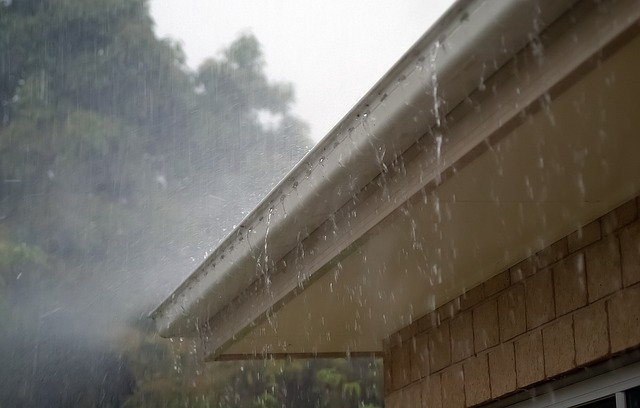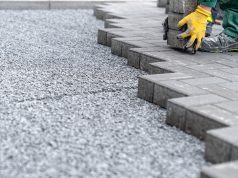If you just acquired a new property, you may be surprised to realise the builders failed to fit gutters. How could you disregard these fittings during the house inspection? Regardless, you are now left with the task of fitting gutters and downpipes. It can cost you hundreds or thousands of pounds to install these features based on your house size.
On the other hand, since clogged gutters can be a nuisance, is it essential to install them? Do all houses need gutters? Well, here are the main reasons why homes have gutters and downpipes.
Prevents Erosion
Most houses are constructed on a slight slope to let the rainwater flow away from the foundation. However, should the rainwater flow off the roof because the house lacks gutters, the water will cause substantial soil erosion. In the end, rainwater will wash away plenty of soil whenever it rains.
The result is that your carefully sloped landscape will become unappealing. Indeed, the water will start flowing towards the house instead of flowing away from it. In addition, continuous erosion causes the foundation to weaken. Ultimately, you may discover uneven floors and cracked chimneys and walls.
Prevent Basement Flooding
The soil becomes heavy after channelling plenty of water. It means the water that flows from the roof and pools around the property will exert pressure on the foundation. Over an extended period, this may make the basement walls weaken, push inwards, and eventually crack.
Small cracks on the foundation walls let water in and result in basement flooding. While the water that passes through the walls may not be substantial, extreme moisture enhances mould growth, which is typically a health hazard.
Protect Garden Yards
Most homeowners love planting shrubs and flowers around their houses. These vegetations create an attractive aesthetic in addition to acting as a windbreaker to secure the property against extreme winter weather. Unfortunately, the yard may wash away when soil erosion happens due to a lack of gutters.
During minimal soil erosion, water puddles will form around the yard and end up drowning the vegetation. On the other hand, melting snow will fall, freeze into solid ice sheets that may kill the plants.
Secure the Siding
Your siding will have unpleasant staining whenever rainwater carries dirt, asphalt particles and leaves down the siding. This affects the overall curb appeal. In addition, over a prolonged period, the rainwater streams may start to rot the siding, particularly for wood siding. Luckily, you can avoid this menace by installing gutters.
The Use of Deepflow Guttering
As a homeowner, you may find yourself investing in gutters without evaluating the significance of deep flow guttering. Usually, it’s common for typical homeowners to regard gutters as features that all homes need to include. However, in this case, they may overlook the benefits of a unique rainwater system.
A deepflow guttering system is typically ignored. However, this top-rated alternative to other gutter types is beginning to gain momentum. The main reason for this is that it’s sufficiently detailed and compromises on the width. In addition, a deep flow gutter can easily handle different climatic conditions.
What Kind of Damage Can Clogged Gutters Cause?
It’s recommended to discover the type of damage clogged gutters may cause. So, it would help if you cleaned the gutters immediately after you encounter the signs. Then, check out the kind of damage you may get from clogged gutters.
Broken Gutters
If the gutters are clogged, the water collects without flowing to any place. So, it fills the gutters. The pressure exerted by the collected may ultimately make the gutters bend or, worse, detach from the roof.
Insect Infestations
No one likes insect infestation, especially mosquitoes. A pool of water in the gutters offers perfect breeding for the mosquitoes. Still, leaves and mud lure wasps and bees into building their nests. So, you certainly recognise how dangerous these insects are when distressed.
Wet Basement
If you lack a waterproof basement, the water that pours to the roof’s foundation due to clogged gutters results in a damp basement.
After installing gutters, it is recommended to regularly clean and maintain them to avoid the problems mentioned above. In that case, you may incorporate your DIY skills or consider hiring a proficient company that does the installations, repairs and maintenances.














